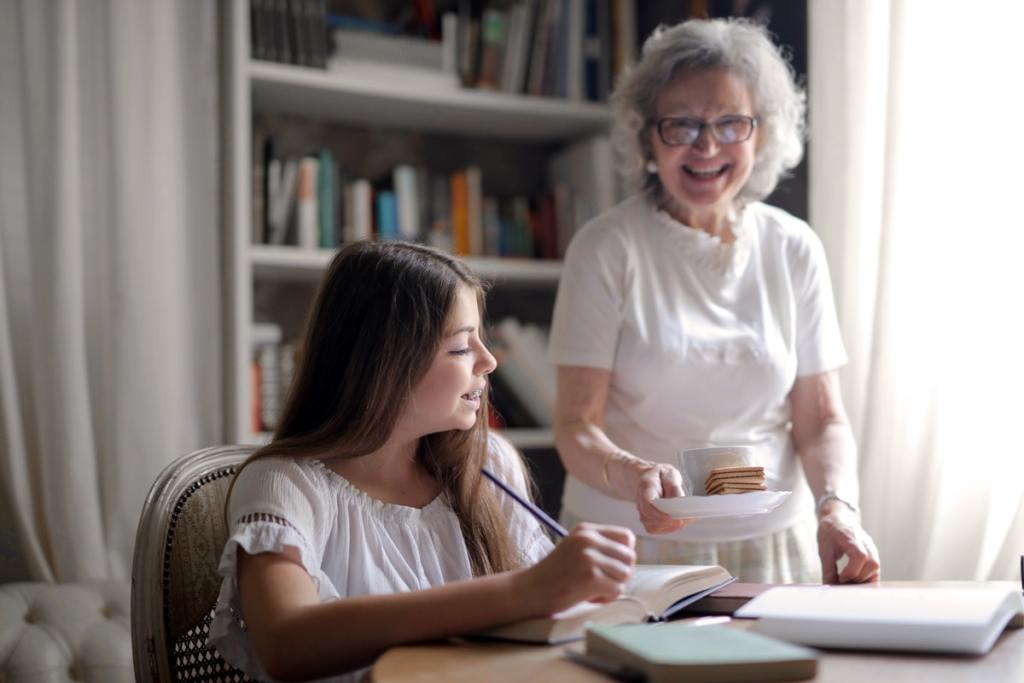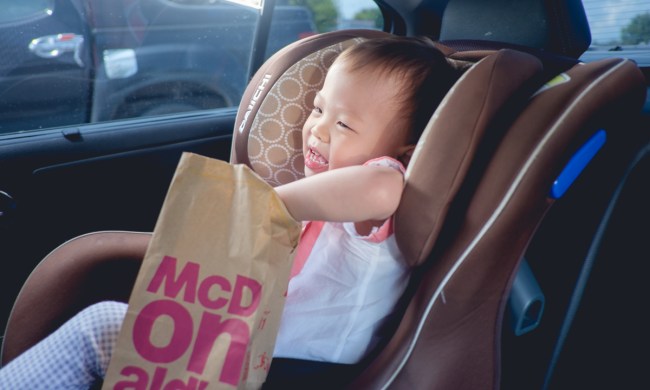Does this morning scenario sound familiar? You and your family are heading out the door when suddenly, you hear the infamous question, “Can I try some of your coffee?”
Yes, your child has noticed that traveling mug in your hand almost every morning, and consequently, has developed a curiosity about the taste. Why not? Sometimes that mug radiates inviting aromas of pumpkin spice or caramel mocha. So, should kids drink coffee?
We have the answer and more information about whether coffee is a good idea.

Should kids drink coffee
While this question can’t be answered with a simple “yes” or “no,” you might consider proceeding with caution or waiting altogether. In fact, according to an article published by Johns Hopkins Medicine, the FDA doesn’t have set standards for caffeine consumption in children and youth. However, the American Pediatric Society recommends holding off on coffee until a person reaches adulthood.
Nonetheless, some youngsters incorporate the morning cup of joe at an early age. In a 2017 report of a study conducted in 1999 to 2000, published by Pediatrics, coffee made up a tenth of the caffeine consumption by children between the ages of 2 to 11. Ten years later, that figure increased to 24%. Regardless of the effects, there appears to be an upward trend of coffee being the beverage of choice for kids.
Effects of caffeine
Nonetheless, caffeine comes with its own set of adverse effects. These effects, which vary depending on the child’s age, weight, and tolerance, include:
- Increased alertness to hyperactivity
- Increased anxiety
- Acid reflux (especially if too much caffeine is ingested)
- Heightened blood pressure and heart rate
- Sleep disturbance
These symptoms usually indicate that the amount of caffeine surpassed a “normal” level, so care must be taken when children drink any beverage that contains this stimulant. Furthermore, a teen can forget how much caffeine he or she has taken in one day—especially when you consider sodas, coffee, and/or energy drinks all contain caffeine.
Can kids develop a coffee addiction?
Some experts agree that coffee can be addicting and that the withdrawal symptoms are not a figment of your imagination. These symptoms often include:
- Headache
- Fatigue
- Anxiety (if the person has been drinking coffee for a while)
- Difficulty with concentrating
- Changes in mood
- Tremors
- Overall low energy level
If you have a tween or teen who has developed a coffee habit—even just a cup a day—to power through the usual routine, you might need to address this concern with your pediatrician. Your child’s fatigue might originate from another physical or mental health issue. Also, you should consider the fact that caffeine is actually a psychoactive substance, particularly a stimulant which can trigger dependency, if not addiction.

At what age can a child drink coffee?
Some dieticians argue that parents should wait until age 18 since coffee can pack on empty calories with its content of sugar, cream, and other flavorings in addition to its addicting factor and effects on mood. Others recommend starting with limited small amounts for prepubescent children. Basically, you would have to look at your child’s overall well-being and age and weigh those factors against any possible risks. For teenagers, you would have to consistently monitor them or remind them that caffeine comes from multiple sources to ensure they never experience serious illness from ingesting too much of the substance.
Are there any benefits to drinking coffee?
You may have heard of the benefits that coffee offers, such as decreased risk of stroke, heart conditions, and some cancers. Also, coffee does contain antioxidants that fight free radicals that contribute to Alzheimer’s and Type 2 Diabetes. However, doctors can’t ensure that these advantages carry over from childhood to adulthood since no definitive studies have been conducted on this matter.
All in all, you might need to tell your child to wait a while, preferably until they become an adult, before trying the first cup of java. When pondering the question “Should kids drink coffee,” you should also ask yourself if the practice is worth the risk. The marked effects on mood and energy level might be just enough to put off coffee for as long as possible. Nonetheless, your child will look back on this decision with clarity and gratitude.



